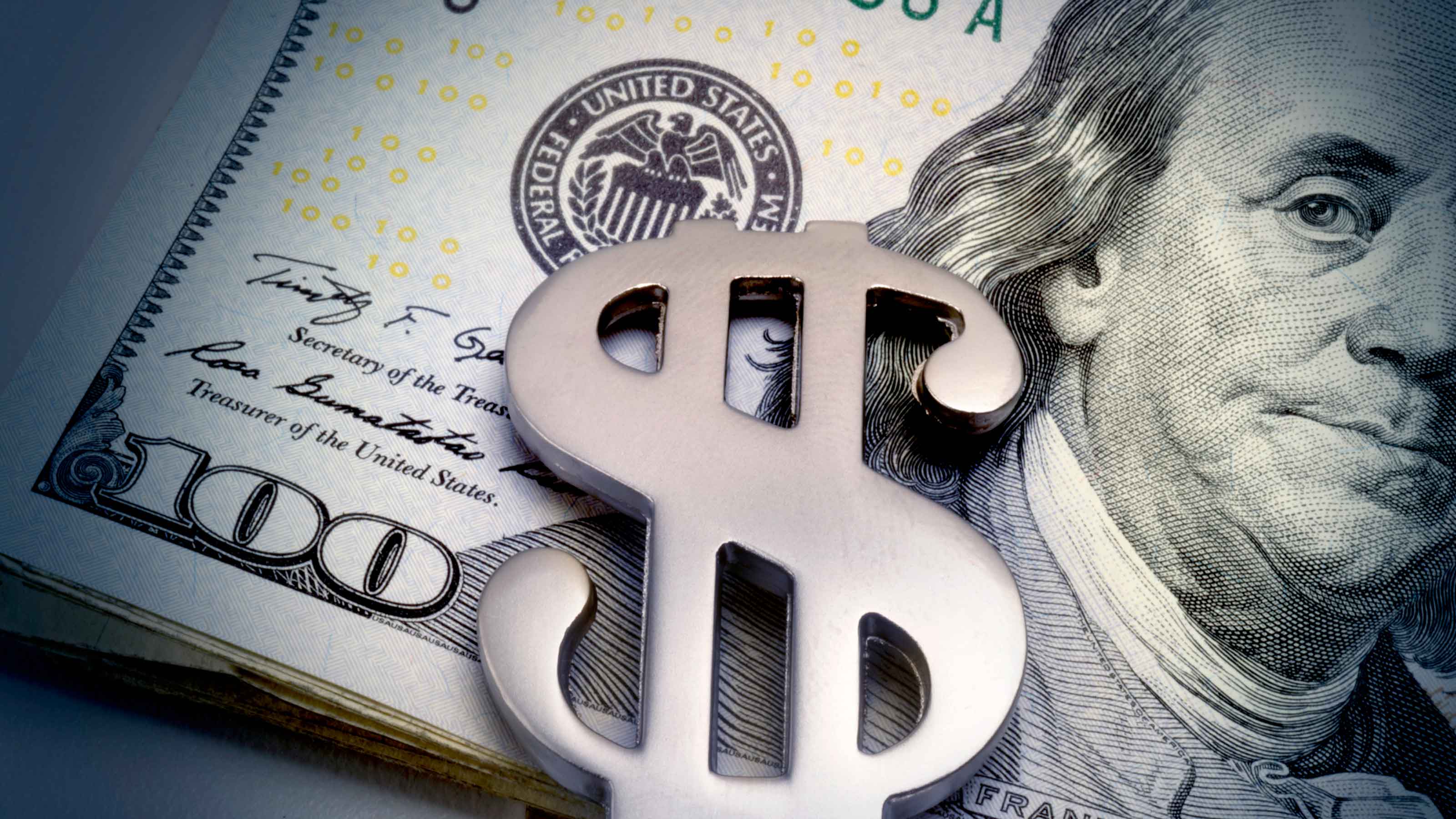Is It too Late to Buy Emerging Markets?
Stocks from developing countries have rallied strongly, but there still are opportunities to make money in this sector -- if you can handle the volatility.

Profit and prosper with the best of Kiplinger's advice on investing, taxes, retirement, personal finance and much more. Delivered daily. Enter your email in the box and click Sign Me Up.
You are now subscribed
Your newsletter sign-up was successful
Want to add more newsletters?

Delivered daily
Kiplinger Today
Profit and prosper with the best of Kiplinger's advice on investing, taxes, retirement, personal finance and much more delivered daily. Smart money moves start here.

Sent five days a week
Kiplinger A Step Ahead
Get practical help to make better financial decisions in your everyday life, from spending to savings on top deals.

Delivered daily
Kiplinger Closing Bell
Get today's biggest financial and investing headlines delivered to your inbox every day the U.S. stock market is open.

Sent twice a week
Kiplinger Adviser Intel
Financial pros across the country share best practices and fresh tactics to preserve and grow your wealth.

Delivered weekly
Kiplinger Tax Tips
Trim your federal and state tax bills with practical tax-planning and tax-cutting strategies.

Sent twice a week
Kiplinger Retirement Tips
Your twice-a-week guide to planning and enjoying a financially secure and richly rewarding retirement

Sent bimonthly.
Kiplinger Adviser Angle
Insights for advisers, wealth managers and other financial professionals.

Sent twice a week
Kiplinger Investing Weekly
Your twice-a-week roundup of promising stocks, funds, companies and industries you should consider, ones you should avoid, and why.

Sent weekly for six weeks
Kiplinger Invest for Retirement
Your step-by-step six-part series on how to invest for retirement, from devising a successful strategy to exactly which investments to choose.
Emerging markets are on fire. From March 2 through July 15, the MSCI Emerging Markets index advanced a staggering 61% -- the sector's strongest rally ever over so brief a period. Is it too late to hop aboard?
Keep in mind that the index plummeted 65% from October 29, 2007, until March 2. That means emerging markets are still trading at little more than half their value of 18 months ago. As for valuation, the MSCI index trades at about 13 times operating earnings for the past 12 months, according to Thomson Reuters I/B/E/S. "Emerging-markets stocks, in general, aren't cheap, but they aren't expensive," says Chris Laine, one of six managers who steer SSgA Emerging Markets (symbol SSEMX). "The easy money has been made."
But emerging markets are growing while the developed world is not. Analysts who track emerging-markets stocks estimate that earnings will rise 7% to 10% over the next 12 months. Amid the worst global recession since the 1930s, those numbers are enticing -- even if, as so often happens with analyst forecasts, they turn out to be overly optimistic.
From just $107.88 $24.99 for Kiplinger Personal Finance
Become a smarter, better informed investor. Subscribe from just $107.88 $24.99, plus get up to 4 Special Issues

Sign up for Kiplinger’s Free Newsletters
Profit and prosper with the best of expert advice on investing, taxes, retirement, personal finance and more - straight to your e-mail.
Profit and prosper with the best of expert advice - straight to your e-mail.
Patient investors have been amply rewarded. The MSCI Emerging Markets index returned an annualized 9% over the past ten years through July 15, compared with an annualized 2% loss for Standard & Poor's 500-stock index.
But virtually everyone who has ever put a nickel into emerging markets bears battle scars. In 1997-98, for instance, the MSCI index tumbled 57%, largely because currencies of one emerging country after another collapsed during the "Asian contagion." The trick in this dicey sector is to hold on -- regardless of the short-term pain. "Unless you're a gun-slinging hedge fund, emerging markets are not where you want to trade," Laine says.
Volatility comes with the territory. Even though many developing economies are arguably much healthier financially than the U.S., their stocks fell far more than ours did last year. The reason? Investors view emerging markets through two separate prisms. On one hand, they see some of the world's fastest-growing economies. On the other, they see some of the riskiest stocks on the planet. When stocks in developed nations rise or fall, emerging-markets stocks usually do the same-but much more so.
Emerging markets are tethered to the developed world. The commodity-producing countries, such as Brazil and Russia, thrive when the global economy is robust enough to devour more and more oil, gas and other natural resources. The manufacturing countries, mainly in Asia, count heavily on exporting their products to the U.S., Japan and other developed nations.
China, now the world's third-largest economy, and other emerging markets boast burgeoning middle classes, who can afford more consumer goods and services. That's a welcome trend. The world desperately needs Chinese consumers to spend more and U.S. consumers to save more.
Emerging markets pose special risks. Companies often don't treat shareholders as owners. A company, particularly one partly owned by the government, often has higher priorities than rewarding shareholders. It's also difficult to obtain solid information about companies in emerging markets. Politically, the dangers of revolutions, coups, government defaults and nationalization are much greater in emerging markets than in the developed world.
Despite the short-term risks, the future for emerging markets is bright. For decades to come, a huge share of the globe's economic growth will likely take place in these countries. I think most investors -- except those with short time horizons -- should keep roughly 10% of their stock money in emerging markets.
Five first-rate funds
How to invest? Start by avoiding almost all narrowly focused country and regional mutual funds and exchange-traded funds. A diversified emerging-markets fund will give you all the thrills and spills you can handle. I fail to understand what makes people think they can predict what will happen in India better than they can guess the future for, say, Target -- where they may shop regularly.
You can choose from several outstanding funds. SSgA Emerging Markets picks stocks primarily using sophisticated computer programs. The fund has essentially tracked the MSCI index over the past ten years. T. Rowe Price Emerging Markets (PRMSX), with an identical expense ratio of 1.24%, has beaten the index by an average of one percentage point per year over the same period.
Fans of index funds are well served by Vanguard Emerging Markets Stock Index (VEIEX) or Vanguard Emerging Markets Stock ETF (VWO), which charge annual fees of 0.32% and 0.20%, respectively.
If you use an adviser, American Funds New World A (NEWFX) is a unique offering. It keeps about 25% of its assets in multinational companies that do a lot of business in emerging markets-and usually holds some emerging-markets debt as well as stocks. Over the past ten years, it has trailed the MSCI index by about half of a percentage point per year but has exhibited 20% less volatility. That's a big plus in a sector in which hanging on during rough markets can be the hardest part of the game.
Steven T. Goldberg (bio) is an investment adviser and freelance writer.
Profit and prosper with the best of Kiplinger's advice on investing, taxes, retirement, personal finance and much more. Delivered daily. Enter your email in the box and click Sign Me Up.

-
 Over 65? Here's What the New $6K 'Senior Deduction' Means for Medicare IRMAA Costs
Over 65? Here's What the New $6K 'Senior Deduction' Means for Medicare IRMAA CostsTax Breaks A new deduction for people over age 65 has some thinking about Medicare premiums and MAGI strategy.
-
 U.S. Congress to End Emergency Tax Bill Over $6,000 Senior Deduction and Tip, Overtime Tax Breaks in D.C.
U.S. Congress to End Emergency Tax Bill Over $6,000 Senior Deduction and Tip, Overtime Tax Breaks in D.C.Tax Law Here's how taxpayers can amend their already-filed income tax returns amid a potentially looming legal battle on Capitol Hill.
-
 5 Investing Rules You Can Steal From Millennials
5 Investing Rules You Can Steal From MillennialsMillennials are reshaping the investing landscape. See how the tech-savvy generation is approaching capital markets – and the strategies you can take from them.
-
 White House Probes Tracking Tech That Monitors Workers’ Productivity: Kiplinger Economic Forecasts
White House Probes Tracking Tech That Monitors Workers’ Productivity: Kiplinger Economic ForecastsEconomic Forecasts White House probes tracking tech that monitors workers’ productivity: Kiplinger Economic Forecasts
-
 Investing in Emerging Markets Still Holds Promise
Investing in Emerging Markets Still Holds PromiseEmerging markets have been hit hard in recent years, but investors should consider their long runway for potential growth.
-
 Stocks: Winners and Losers from the Strong Dollar
Stocks: Winners and Losers from the Strong DollarForeign Stocks & Emerging Markets The greenback’s rise may hurt companies with a global footprint, but benefit those that depend on imports.
-
 5 Exciting Emerging Markets Funds to Buy
5 Exciting Emerging Markets Funds to BuyForeign Stocks & Emerging Markets Emerging markets funds haven't been immune to global inflationary pressures. But now might be the time to strike on these high-risk, high-reward products.
-
 African Stocks: Investing in the Last Great Emerging Market
African Stocks: Investing in the Last Great Emerging MarketForeign Stocks & Emerging Markets A massive middle class and rapid technology-enabled development could turn African stocks into growth darlings over the next two decades.
-
 ESG Gives Russia the Cold Shoulder, Too
ESG Gives Russia the Cold Shoulder, TooESG MSCI jumped on the Russia dogpile this week, reducing the country's ESG government rating to the lowest possible level.
-
 India Is on a Tear
India Is on a TearForeign Stocks & Emerging Markets Massive modernization presents opportunities for investors.
-
 Wasatch Emerging Markets Small Cap Goes Its Own Way
Wasatch Emerging Markets Small Cap Goes Its Own WayForeign Stocks & Emerging Markets This emerging-markets stock fund isn't afraid to stray from the pack.